
Glasgow City Council is the local government authority for Glasgow City council area, Scotland. In its modern form it was created in 1996. Glasgow was formerly governed by a corporation, also known as the town council, from the granting of its first burgh charter in the 1170s until 1975. From 1975 until 1996 the city was governed by City of Glasgow District Council, a lower-tier authority within the Strathclyde region.
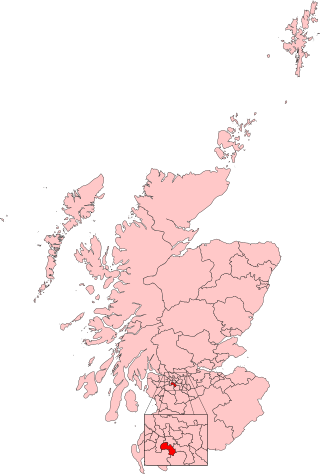
Glasgow South is a burgh constituency of the House of Commons of the Parliament of the United Kingdom (Westminster). It elects one Member of Parliament (MP) by the first past the post system of election.
Glasgow Cathcart was a burgh constituency represented in the House of Commons of the Parliament of the United Kingdom from 1918 until 2005, when it was replaced by the larger Glasgow South constituency.

Elections to Glasgow City Council were held on 3 May 2007, the same day as the other Scottish local government elections and the Scottish Parliament general election. The election was the first one using 21 new wards created as a result of the Local Governance (Scotland) Act 2004, each ward elected three or four councillors using the single transferable vote system form of proportional representation. The new wards replaced 79 single-member wards which used the plurality system of election. It also saw the election of Glasgow's first councillors for the Scottish Greens and for Solidarity.
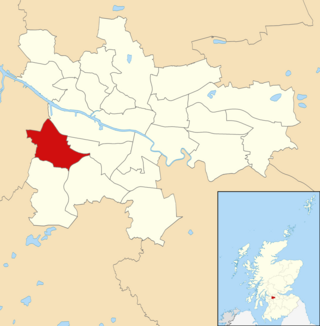
Cardonald is one of the 23 wards of Glasgow City Council. It was created in 2007 as Craigton and returned four council members using the single transferable vote system. The same name and boundaries were used in the 2012 elections. For the 2017 Glasgow City Council election, the name was changed although the territory and councillor numbers remained the same.
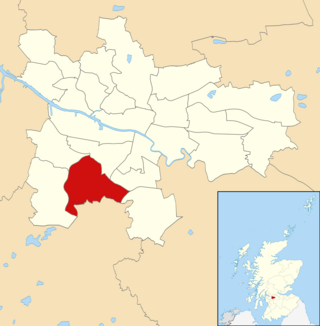
Newlands/Auldburn is one of the 23 wards of Glasgow City Council. Situated south of the city and the River Clyde, it is represented by 3 members as of May 2022, one each from the Scottish National Party, Scottish Labour, and Scottish Green Party.

Langside is one of the 23 wards of Glasgow City Council. On its creation in 2007 and in 2012 it returned three council members, using the single transferable vote system. For the 2017 Glasgow City Council election, the boundaries were changed, the ward increased in size and returned four members.

Garscadden/Scotstounhill is one of the 23 wards of Glasgow City Council. Since its creation in 2007 it has retained the same boundaries and returned four council members, using the single transferable vote system.
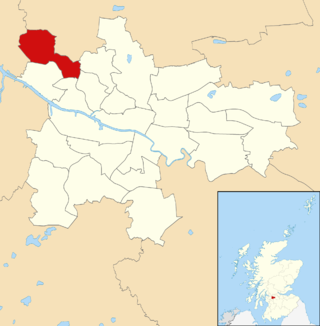
Drumchapel/Anniesland is one of the 23 wards of Glasgow City Council. Since its creation in 2007 it has retained the same boundaries and returned four council members, using the single transferable vote system.

Shettleston is one of the 23 wards of Glasgow City Council. Since its creation in 2007 it has returned four council members, using the single transferable vote system; the boundaries have not changed since it was formed.

The Glasgow City Council election of 2017 was held on 4 May 2017, the same day as the 31 other Scottish local government elections. The election was the first to use 23 new wards, created as a result of the Local Government Boundary Commission for Scotland's 5th Review. Each ward elected three or four councillors using the single transferable vote system, a form of proportional representation used since the 2007 election and according to the Local Governance (Scotland) Act 2004.

East Centre is one of the 23 wards of Glasgow City Council. On its creation in 2007 and in 2012 it returned four council members, using the single transferable vote system. For the 2017 Glasgow City Council election, the boundaries were changed, but four members were still returned.

Baillieston is one of the 23 wards of Glasgow City Council. On its creation in 2007 and in 2012 it returned four council members, using the single transferable vote system. For the 2017 Glasgow City Council election, the boundaries were changed: the ward decreased in size and population, and returned three members.
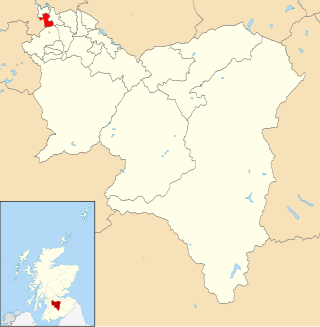
Rutherglen South is one of the 20 electoral wards of South Lanarkshire Council. Created in 2007, the ward elects three councillors using the single transferable vote electoral system and covers an area with a population of 15,322 people.

Rutherglen Central and North is one of the 20 electoral wards of South Lanarkshire Council. Created in 2007, the ward elects three councillors using the single transferable vote electoral system and covers an area with a population of 14,237 people.

Cambuslang West is one of the 20 electoral wards of South Lanarkshire Council. Created in 2007, the ward elects three councillors using the single transferable vote electoral system and covers an area with a population of 14,096 people.

Cambuslang West is one of the 20 electoral wards of South Lanarkshire Council. Created in 2007, the ward elects three councillors using the single transferable vote electoral system and covers an area with a population of 17,418 people.

Elections to Glasgow City Council took place on 5 May 2022 on the same day as the 31 other Scottish local government elections. As with other Scottish council elections, it was held using single transferable vote (STV) – a form of proportional representation – in which multiple candidates are elected in each ward and voters rank candidates in order of preference.
The 2022 East Renfrewshire Council election took place on 5 May 2022 on the same day as the 31 other Scottish local government elections. The election used the 5 wards created under the Local Governance (Scotland) Act 2004, with 18 councillors being elected. Each ward elected either 3 or 4 members, using the STV electoral system.
This is a list of elections in the United Kingdom scheduled to be held in 2022. Included are local elections, by-elections on any level, referendums and internal party elections.

















